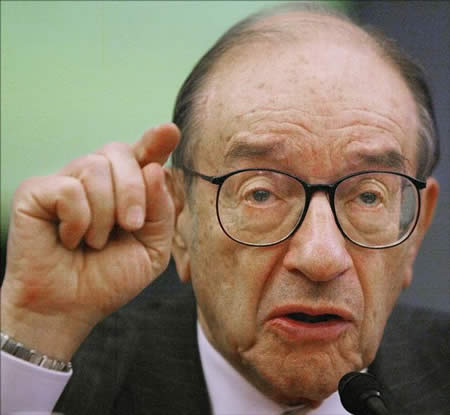The New York Times reported recently that Ben Bernanke believes, “Regulation is the best way to prevent financial speculation from getting out of hand and throwing the economy in a new crisis.” This is understandable especially from Bernanke's position. Time's “Man of the Year” makes major decisions in the hopes of fixing the economy but finds that Wall Street's speculations about his actions ultimately have a greater impact than his actual actions, which is probably very frustrating. He keeps interest rates low in the hopes of getting banks to lend money to small businesses and stimulate the economy, but instead, banks hold onto their cash because of speculation that the Fed will raise interest rates in the future. Then in the future, if he doesn't raise interest rates, people will still fear that he will raise interest rates even farther into the future and the cycle continues.
In a sense, Bernanke is completely powerless. It is eerily similar to Japan and the “Lost Decade.” The Lost Decade isn't cool like the Lost Generation but rather a frightening period in Japan's recent history. In 1989, in the middle of gigantic asset price bubble, Japan's central bank raised interest rates to counteract speculating and the aforementioned bubble. The high interest rates acted as a very large needle which popped the bubble and led to a stock market crash, real state market crash and then several government bailout of Japanese banks. Sound familiar? I know that this comparison is hardly groundbreaking. Obama warned about the potential Lost Decade less than a month after his inauguration. What I want to show is how little an impact the central bank has in both cases.
Paul Krugman wrote Japan's economics problems of the 90's were, "simply because its consumers and investors do not spend enough." Krugman, as you might imagine, felt that this could be assuaged just by printing more money. Although it seems to me that the high savings rate among the Japanese is too ingrained in Japanese culture for a simple monetary policy tweak to fix. Japan tried to encourage spending by giving out non-savable tax refunds but the Japanese simply used the refund to buy their essentials and saved the money they would have used for their essentials.
Not to sound fatalistic but you can't make people behave a certain way. If the Japanese don't understand the Paradox of Frugality then you can't make them and even if they do understand the concept, there's still the "rat choice" issue. Samuel Popkin explains, "Everybody’s business is nobody’s business. If everyone spends an additional hour evaluating the candidates, we all benefit from a better-informed electorate. If everyone but me spends the hour evaluating the candidates and I spend it choosing where to invest my savings, I will get a better return on my investments as well as a better government."
Consider Popkin's example but think in terms of the Paradox of Frugality. If everyone spends more money then we all benefit from a strong, stimulated economy. If everyone spends but me, then I benefit from the strong, stimulated economy and I benefit from my extra savings. It's for predicaments like this that government exists. Government coerces people into paying taxes so that everyone has to contribute to things like defense. If everyone contributes money to an army we all benefit from the extra defense, if everyone but me contributes then I benefit from the defense and the extra money. So government makes people contribute for these universal causes because they wouldn't be feasible otherwise. It is the business of government to prevent those who try and take advantage of others collective goodwill.
Now Ben Bernanke is trying to do a similar thing, get Americans to spend money. More specifically, he's trying to get banks to loan money to small businesses to hire people to spend money, but he's having trouble. The banks simply won't loan out money. The Fed has done all you can ask. They're giving the banks easy money to loan but the banks just pocket it.
Bernanke is almost powerless. All he can do his is try to encourage positive economic behavior; he can't actually make it happen. This is why Bernanke wants regulation; he wants to be able to control things. If he can give easy money to the banks then he should be able to make them give loans. He wants a government mandate that says, "Do what Ben says." He won't get the regulation he wants because all of the easy money he's given the banks stimulates the stock market, which a lot of people believe is a economic litmus test, and people will believe the economy is fine and won't need any new tweaks. But be wary because the easy money and the obsession with stock prices is what got us here in the first place. If we come out of this financial crisis without learning a lesson, we'll be doomed to repeat history.
Subscribe to:
Post Comments (Atom)

No comments:
Post a Comment